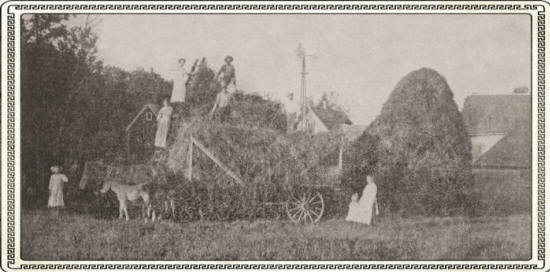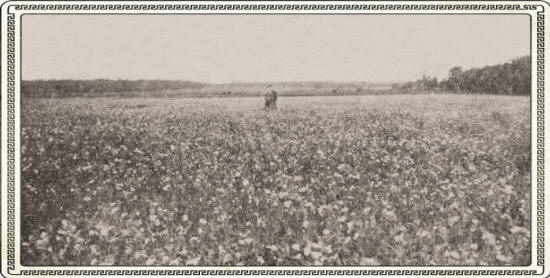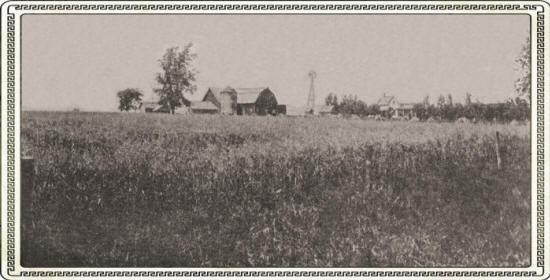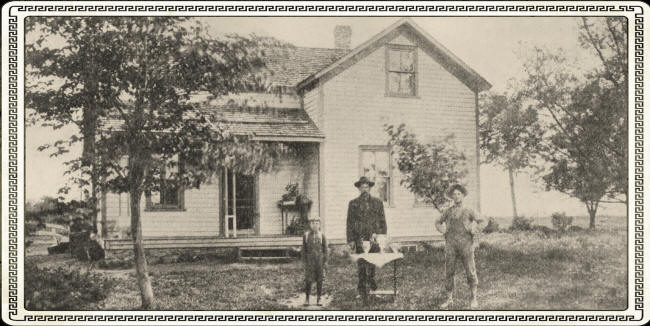OWEN, A Lusty Little Village

DEVELOPED FROM A WILDERNESS INTO A THRIVING MART IN A DECADE
Owen is a young village but a lusty youngster. Its history is for the most part in the future, but it is a glorious history for all that. There is absolutely no question but that with the assured activities of the saw mill and box factory for the next twenty years or more and other enterprises in the village and the wonderful wealth of agricultural country in a section of two or three hundred square miles of which Owen is the center, and the fact that it is the junction of the Duluth and the St. Paul divisions of the Soo Line and the northern terminal of the Fairchild and Northeastern railroad, there is absolutely no question but that the future of Owen is one of continuous prosperity.
Owen was named after the family of that name which first as a part of the Rust-Owen Lumber Company, and later as the J. S. Owen Lbr. Co. have operated extensively as loggers and lumbermen throughout the west and in Wisconsin. The old Wisconsin Central, now the Soo line, was pushed through to Ashland in 1881 but for years after that there was no station or any special sign of human enterprise at the place where Owen now is. Withee was a thriving town a few miles away. The mill was started at its present site in 1893, an outfit known as the Spaulding outfit being brought from a camp on Black river ten or twelve miles distant. The site was selected on account of the wealth of timber, the Popple river, the unusual favorable lay of the land and the extremely fertile soil, the intention of the promoters being not only to strip the timber from the ground and leave nothing but piles of slashings as a menace to the future, as the early loggers had done a generation before, but rather to cut what they could use each season, and bring in settlers to clear this newly cutover land and develop fertile farms where the timber had stood only a few years ago. And in this they have been very successful, an average of 200 families a year locating around Owen and taking up small tracts to make farms. They are a hardworking, thrifty lot and the success with which they change the aspect of the country from that of a stumpy wilderness to that of stunning farms and the evidence of prosperity which comes almost immediately after they start in, is a revelation even to those who know this country best.

Knudt Jensen's Farm, Town of Withee.

Pea Field of William Messing, Town of Withee.

P. Sorensen's Farm, Town of Withee.

Home of John Blunk, Corn King, Near Owen.
Thee village plat of Owen was laid out by C. A. Stockwell in 1905 and the village was incorporated almost immediately afterwards. The Fairchild and Northeastern railroad came through from the southwest to connect with the Soo at Owen in 1907. There has been a steady and conservative growth, the demand for houses always exceeding the supply although the company and private individuals have kept busy building ever since the town was started. The population at the present time is about 1000. The village has an electric light plant and water works and a sewer system. Besides the saw mill and box factory which employ about 300 men, there is a large pea canning factory, with a capacity of 30,000 cases, a potato warehouse and elevator and feed mill, four hotels, four general stores, a bakery, butcher shop, tailor shop, jewelry store, three barber shops. There is a thriving bank, and a newspaper, 2 hardware stores, five saloons, a Danish Protestant church, Congregational and Episcopal churches, a shoe store and harness shop, three doctors, one moving picture theatre, a bottling works, and a local telephone company.
There is a Commercial Club in the village which is active in advancing the interests of the community. G. D. Richards is the president; A. H. Mohr, secretary; and A. G. Johnson, treasurer. The officers of the village are J. P. Anderson, president; H. C. Madsen, D. H. Richardson, William Sutter, W. G. Royer, A. H. Knight and Oscar Griebenow, aldermen. L. B. Chabot is village treasurer and O. D. Richards clerk. One of the industries to which Owen is looking forward is a condensery.
The officers of the John S. Owen Lumber Company are John S. Owen president and treasurer; Aloney R. Owen, vice president and manager; Edward A. Owen, second vice pres.; John G. Owen, secretary; Gunder E. Anderson, assistant secretary and treasurer.
Owen has probably without doubt the best hotel in Wisconsin for a town of its size—the Woodland — owned by the Owen company.
Business Directory
Abler, P. J., General Store.
Andersen, N. J., Blacksmith.
Beck, Peter, Livery.
Branstad, A. J., Restaurant.
Carter, Mrs. Edw., Restaurant.
Cherrette, M. J., Grocer.
Cichoski, Anton, Shoes.
Crane, E. J., Flour, Feed, etc.
Dilling, Miss M. R., Millinery.
Elliott, Joseph, Saloon.
Falk, Aug. F., Hardware.
Fleischman, J. B., Meats.
Gelhaar, Ed., Grocer.
Griffin Pharmacy.
International Canning Machinery Co.
Juvafi, J. L., Tailor.
Krom, Louis, Clothing and Dry Goods.
Merriman, V. D., Restaurant and Confectionery.
Miller, Mike, Saloon.
O’Neill, C. A., Saloon.
Owen Auto Co.
Owen Bottling Works.
Owen Box and Crating Co.
Owen, John S., Lumber Co. [Advetisement]
Owen Potato Co.
Owen Shoe Store.
Owen Telephone Co.
Potter, Mrs. H. Restaurant.
Rapponen, Matt., Gen. Store.
Rasmussen, N. P., Saloon.
Rawson & Griebenow Co., Hardware and Furniture.
Richardson, D. R. Gen. Store.
Schmocher, John, Hotel.
State Bank of Owen.
Sturgeon G. I., Saloon.
Vandruil, E. J., Canning Co.
Westgaard Bros., Bakery.